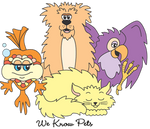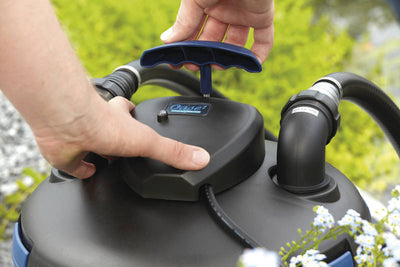
As a new pet parent, it's important to ensure your puppy receives the necessary vaccinations to protect them from potentially deadly diseases.
In Australia, there are specific vaccines that are recommended for puppies, and a recommended schedule for when they should receive them.
Learn more about the importance of vaccinating your puppy and how often you should do it in this guide.
Why Vaccinating Your Puppy is Important in Australia.
Vaccinating your puppy is crucial in Australia to protect them from a range of potentially deadly diseases. These diseases can be easily spread through contact with other dogs or contaminated environments, and can cause serious health problems or even death. By vaccinating your puppy, you are not only protecting their health, but also helping to prevent the spread of these diseases to other dogs in the community.
Understanding the Different Types of Vaccines.
There are several different types of vaccines that your puppy may receive, each designed to protect against specific diseases. These include core vaccines, which are recommended for all puppies, and non-core vaccines, which may be recommended based on your puppy's lifestyle and risk factors. Core vaccines include those for diseases like distemper, parvovirus, and hepatitis, while non-core vaccines may include those for diseases like Lyme disease or kennel cough. It's important to work with your veterinarian to determine which vaccines are necessary for your puppy's health.
When to Vaccinate Your Puppy.
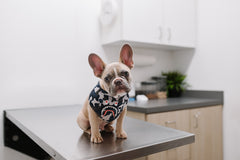
It's important to start vaccinating your puppy at a young age, typically around 6-8 weeks old. From there, they will need a series of vaccinations spaced out over several weeks to ensure they are fully protected.
Your veterinarian will be able to provide you with a vaccination schedule specific to your puppy's needs.
It's also important to remember to keep up with regular booster shots throughout your puppy's life to maintain their immunity to these diseases.
The Importance of Booster Shots.
While it's crucial to start vaccinating your puppy at a young age, it's equally important to keep up with regular booster shots throughout their life. Booster shots help to maintain your puppy's immunity to the diseases they were vaccinated against. Your veterinarian will be able to provide you with a schedule for booster shots, which typically occur annually or every three years depending on the vaccine. Don't skip these important appointments, as they can help keep your puppy healthy and protected.
Risks and Side Effects of Vaccinations.
While vaccinations are generally safe and effective, there can be some risks and side effects associated with them. These can include mild reactions such as soreness at the injection site, fever, and lethargy. In rare cases, more serious reactions can occur, such as an allergic reaction. However, the benefits of vaccinating your puppy far outweigh the risks, as it helps protect them from potentially life-threatening diseases. If you have any concerns about vaccinations, be sure to discuss them with your veterinarian
When you take your pup home after their vaccinations, allow them to rest and keep an eye on them for any reactions. Ensure that they have access to fresh water, food and a comfortable area to rest and sleep such as their puppy crate or pen. A comforter toy and plenty of reassuring cuddles will help them settle.
Puppy Vaccination Schedule for Australia
In Australia, it is important to vaccinate your puppy to protect them from serious and potentially deadly diseases.
The first vaccination should be given at 6-8 weeks and will protect against distemper, hepatitis, and parvovirus. A booster vaccination should be given at 10-12 weeks to protect against distemper, hepatitis, parvovirus, parainfluenza, and bordetella. The final puppy vaccination should be given at 14-16 weeks, depending on the brand used, and may not include parainfluenza and bordetella.
After that, your adult dog will require yearly vaccination boosters to remain immune from these diseases. By keeping up with your dog's vaccinations, you can help ensure their health and well-being.
When Can I socialise my Pup with Other Dogs at the Park?
It's important to keep your puppy away from unvaccinated dogs and public areas until they are fully vaccinated to reduce the risk of exposure to these diseases. However, socialising with other vaccinated puppies in a controlled environment like puppy school can be beneficial for their development.
areas until they are fully vaccinated to reduce the risk of exposure to these diseases. However, socialising with other vaccinated puppies in a controlled environment like puppy school can be beneficial for their development.
After completing the full vaccination schedule, it is safe to take your puppy for walks in public parks and introduce them to other dogs. Keep in mind that it takes 1-2 weeks after the final injection for the vaccines to provide full protection. Regular booster shots are also necessary to maintain your puppy's immunity.
Core and non-core dog vaccines
It is important to vaccinate your puppy to protect them from serious and potentially deadly diseases such as parvovirus, distemper, and hepatitis. These vaccines are typically given in a combination injection known as a 'C3' vaccine.
It is recommended that puppies receive their first vaccination at 6-8 weeks of age, followed by boosters at 12 and 16 weeks, and then annually thereafter to maintain immunity. Regular vaccination is crucial in keeping your furry friend healthy and protected.
Non-core vaccines, which are recommended based on your puppy's lifestyle and risk factors, include protection against diseases such as kennel cough and leptospirosis.
© weknowpets 2023

